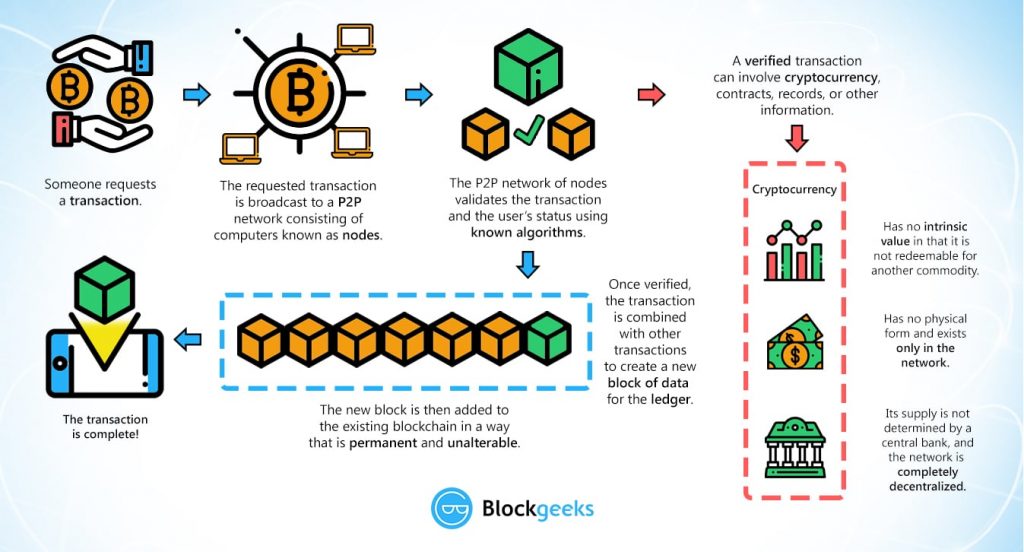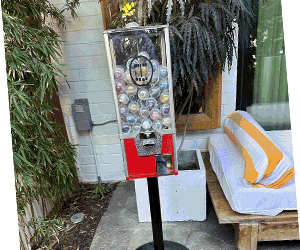
Photo credit: Pixabay / CC0 1.0 Could blockchain affect the casino industry on a global scale?
In recent years we’ve seen a huge change in the traditional casino model and it’s great to see land-based casinos embracing technology at every opportunity. From facial recognition to poker chips with RFID technology, casinos are working tirelessly to improve the experience of their players while also protecting their investment.
But what about blockchain technology? From the medical to financial industries, blockchain is proving to be a game-changer in more ways than one. So is it about time that the casino industry jumped on board this particular bandwagon and would it be worth the effort?
In short, the answer to both parts of that question is yes. So let’s take a look at why.
What is blockchain technology?
Blockchain is a decentralized digital ledger that is used to record transactions across a network of computers. This means that there is no central computer controlling the chain and that any record involved in the chain cannot be altered at any time.

Image credit: Blockgeeks Blockchain ensures absolute transparency
In a nutshell, blockchain provides its users with absolute transparency and increased levels of security. So as you can imagine, it’s a very good thing indeed.
Blockchain can build trust
Casinos are often seen as the bad guy, even by those who play their games on a regular basis. Players have this idea that the casino is out to get them and that they may even rig the odds in their own favor so the little guy always loses out. Fortunately, this is not the case at all, as all casinos must following strict guidelines to ensure that its players have a fair chance to win their chosen game.
Yet even with all those guidelines and regulations controlling a casino’s activities, it’s hard to alter people’s opinions of the casino industry. This is where blockchain changes everything. The very fact that blockchain is, by its nature, a transparent and instant technology, could help improve the industry’s public image.
With every transaction clearly visible and impossible to retroactively alter, a player will always have full access to the data relating to their actions. Crucially, this means that they will know exactly what their odds were at the time of play. Once they can see clearly that the casino is, in fact, playing fair and square, they’ll feel more inclined to trust the casino and continue to play there. In time, casinos will come to realize that this openness could be a major factor in improving how the general public view their business practices, particularly when it comes to games other than poker, such as blackjack and baccarat.
The online industry

Photo credit: Pixabay / CC0 1.0 Caption – The added layer of security blockchain provides is hard to ignore
While the online casino industry has yet to fully embrace blockchain technology, online poker providers realize that their players may want to use bitcoin or other forms of cryptocurrency to play. Some industry heavyweights such as 888poker have made this possible by allowing their players to use Neteller to make deposits. Neteller allows users to deposit using cryptocurrencies and this is then converted into native currencies such as USD that players can then deposit into their accounts.
Interestingly, although the online casino and poker industry are slow to react to this shift towards blockchain, it is this area of the overall casino industry that could benefit the most from the technology. In an era where online security is more important than ever before, the added layer of both privacy and safety could be a major selling point for prospective customers.
Blockchain virtually guarantees a player’s funds are secure, while the anonymity aspect of cryptocurrencies in general would no doubt be quite appealing to seasoned players. These poker players that can count their winnings in the hundreds of thousands and possibly even millions, may prefer to keep a low profile, and who can blame them?
The technology would also improve the current deposit and withdrawal processes that are often controlled by banking institutions. Anyone who has had to wait on a refund to their credit card will know exactly what we’re talking about here.
Blockchain removes the need for an interim payment processor or bank. The transaction, be it a withdrawal of winnings or a deposit of funds, is between the player and the casino. Money is transferred one way or the other instantly, cutting down on interminable wait times and removing unnecessary banking charges.
Will it ever happen?
That’s the million-dollar question. While the advantages are clear, the live casino industry seems somewhat reticent when it comes to adopting the technology. This could be down to many factors, but the most likely is the fact that blockchain is still a relatively new technology.
There have already been some attempts to introduce blockchain into the online casino industry and the poker industry in particular. However, these attempts have received a somewhat muted response. Dedicated online poker platforms built on the technology have failed to draw players away from traditional platforms, while poker and casino ICOs haven’t quite been as popular as anticipated.
Perhaps this muted response to what should have been an exciting development in the industry has convinced the key industry players to take a more measured approach to blockchain and cryptocurrency. After all, there is quite a lot of money involved.
The global casino industry is expected to be worth USD 264.1 billion by the year 2024 and so it makes sense that those who control the industry would want to protect their investment.
Although blockchain does offer considerable benefits for both players and casino providers, it’s likely that the industry’s major stakeholders will see how the technology holds up in other industries first. Only when they are absolutely certain that the technology stands up to scrutiny will they adapt their current processes to make use of it. But even so, if that muted response to poker ICOs and blockchain platforms is anything to go by, it seems that players, like their providers, aren’t quite ready to embrace the technology just yet.





